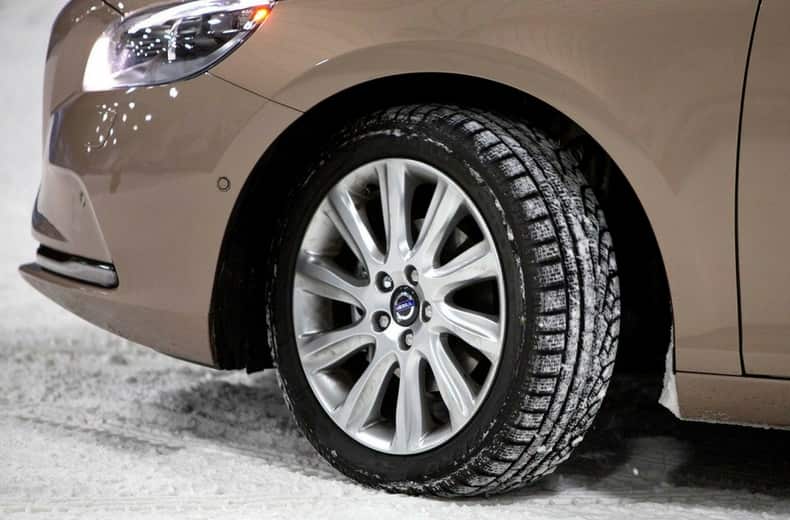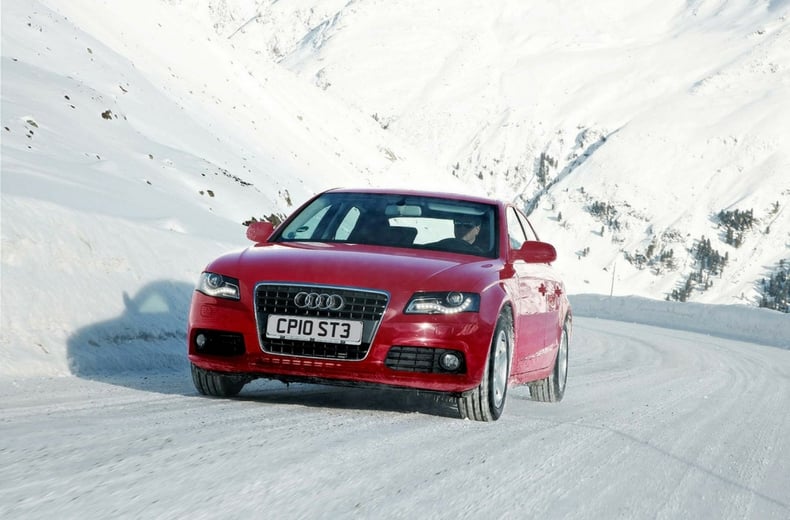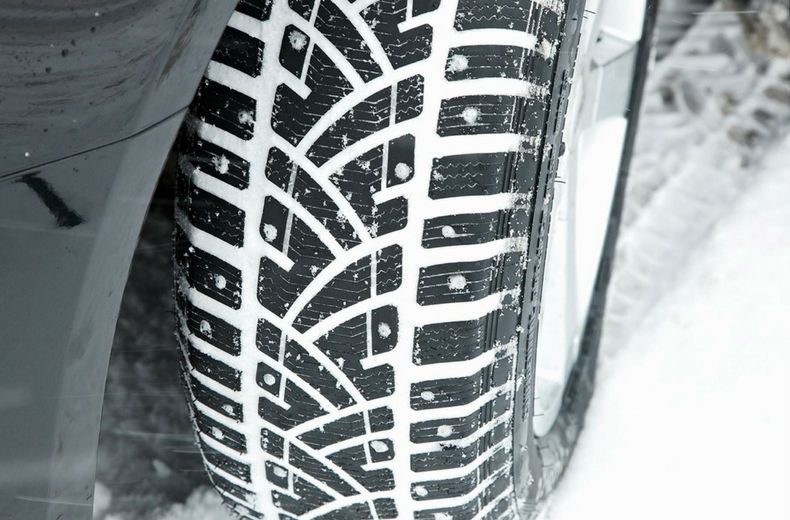Rain, wet leaves, snow, black ice: winter brings its own set of winter driving hazards. Fitting winter tyres to your car improves driving safety – but only in certain conditions.
But what are winter tyres and are they worth fitting to your car? Find out everything you need to know about winter tyres with our in-depth guide.
What are winter tyres?
Winter tyres are designed to improve the road handling of your car when the temperature drops. They have a softer rubber compound, along with deeper grooves and narrow cuts – called sipes – built into the tread. These features help disperse water/snow, and allow the rubber to flex – improving traction and grip in cold conditions.
You can identify winter tyres by the symbols on the sidewall. These are the M+S symbol and the three-peak mountain snowflake (3PMSF) symbol, and both are industry standards.
What are the benefits of winter tyres?

Winter tyres work best at temperatures below seven degrees Celsius. Indeed, they outperform conventional ‘summer’ tyres for traction, cornering grip and braking in such conditions – regardless of whether there is snow or ice.
Tyresafe, an independent road safety charity, has tested the effectiveness of winter tyres.
It found that:
(If viewing on a smart phone turn to side to view table)
| Stopping distances | ||
|---|---|---|
| Temperature/condition | Summer tyres | Winter tyres |
| 20 degrees C | 65.3m | 67m |
| 5 degrees C | 70.5m | 65.7m |
On snow, the gap widens considerably, as the sipes on winter tyres offer grip even when the tread is packed with soft snow. In such conditions, a two-wheel-drive car with winter tyres is invariably safer than 4x4 on summer tyres.
Winter tyres can also help you avoid getting your car stuck in the mud.
How much do winter tyres cost? Can I save money?
The price of winter tyres varies widely, dependent on your car and wheel-size. On average, they are slightly more expensive than an equivalent summer tyre in the UK.
However, while the cost of four winter tyres is significant – especially if you also buy a set of ‘winter wheels’ to avoid swapping over twice a year – remember that your summer tyres will last longer as a result. Thus while you may have a fairly high initial outlay, the longer-term cost of winter tyres is relatively low.
That said, you may also need to pay for storage at a ‘Tyre Hotel’ if you don’t have a suitable garage or shed. Some tyre centres for example, charges £7.50 or more per tyre per season. As a result, some drivers choose all-season or all-weather tyres, which offer a compromised between winter and summer performance.
Fitting winter tyres should not affect your car insurance but it's worth double checking with your provider.
The supplier you purchase the tyre from will usually fit them for you.
For a more generalised overview of the whole tyre buying process read our complete guide to tyre buying.
Service, repair or MOT?
You can trust the RAC with our local approved garages and NEW mobile mechanics.


What is the law on winter tyres?

Winter tyres aren’t mandatory in the UK. Only a small percentage of drivers choose to fit them, many of whom live in more remote areas – such as the Scottish Highlands.
It’s a different story in much of mainland Europe, though. In Sweden, for instance, winter tyres are compulsory from the beginning of December to the end of March. And in Austria, they must be fitted between 1 November and 15 April or you face a fine or up to €5,000.
Always check local guidelines before travelling in order to stay legal and safe.
What are the alternatives to winter tyres?
If you are concerned about the upfront cost of winter tyres, consider a set of snow socks or snow chains instead. Snow socks are high-grip fabric covers that fit over the car’s driven wheels, while snow chains are a harder-wearing (but harder to fit) steel alternative.
To find out pros and cons and how to fit snow chains and snow socks visit our driving in snow advice page.
Neither is a direct substitute for winter tyres as they can’t be used on snow-free roads. But they may offer peace of mind and a way out of a slippery situation.

RAC sale – up to 33% off*
• Roadside cover from £5.49 a month*
• We get to most breakdowns in 60 mins or less
• Our patrols fix 4/5 breakdowns on the spot

What are snow chains?
Tyre chains, also known as snow chains, are devices that can be fitted around the tyres that can provide increased traction on snowy, icy, or otherwise slippery roads.
Although they aren't often seen on UK roads, they are used in more remote locations where weather can trap people in their homes during extreme weather.
They are typically made of metal chains that can be wrap tightly around the tyres. They are a snug fit, and so drivers should check the sizing of their front and rear tyres before purchasing.
Sometimes the chains are only fitted to the front or rear end of the vehicle - but can also be used on all four tyres.
It is important to note that drivers generally need to remove the chains when driving on clear roads, as they can damage both the road and the tyres when used on non-icy surfaces.
They can cause damage to roads, which can result in potholes.





